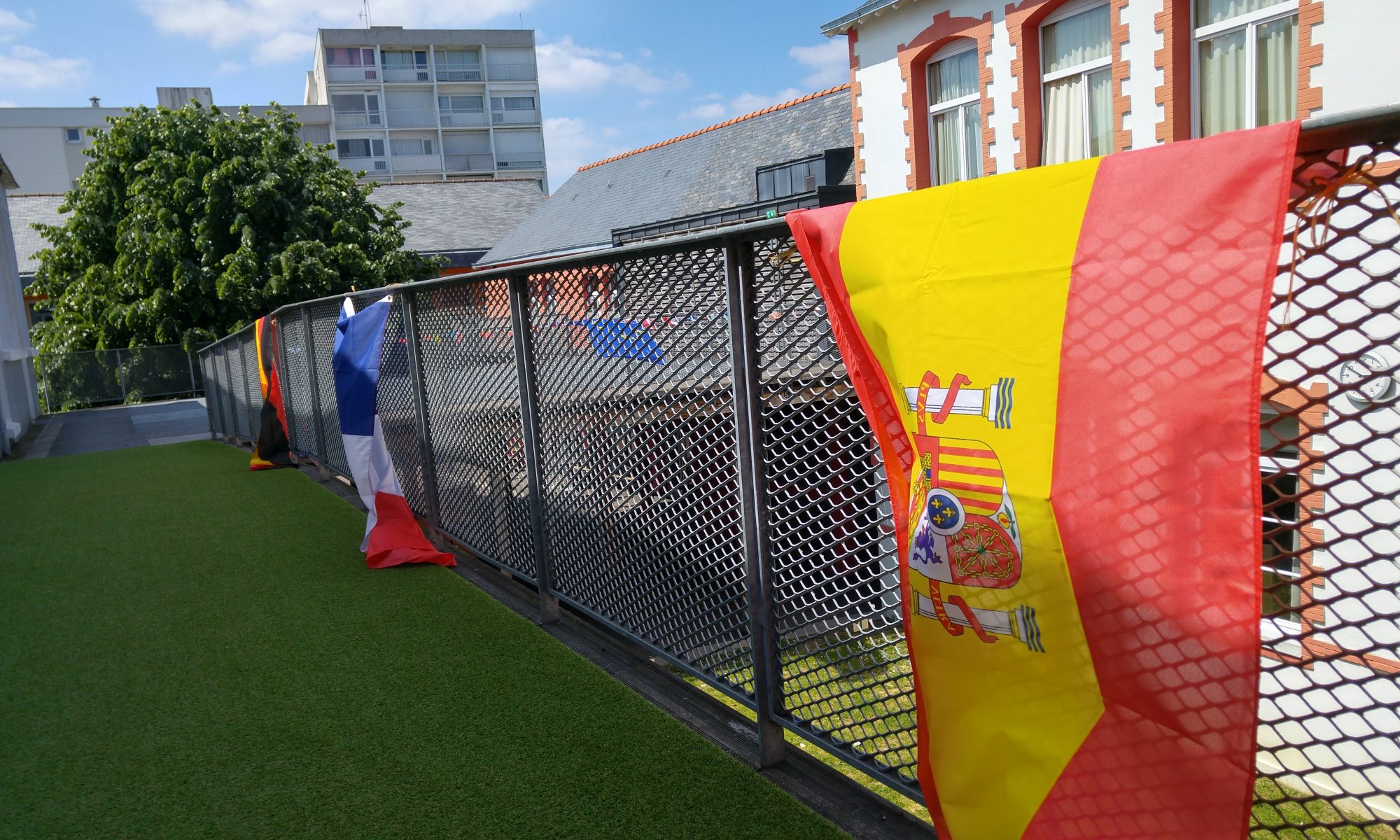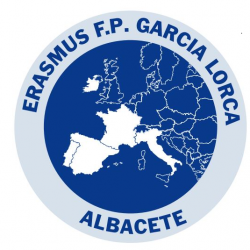GARCIA LORCA ERASMUS VET
1.- The IES Federico García Lorca School is located in Albacete (Spain) and it’s one of the largest secondary schools in Castilla-La Mancha, by number of students. Basic Vocational Training, Intermediate Vocational Cycles (CFGM) and Advanced Vocational Education (CFGS) are delivered in our school, focusing into two different Profesional families: Business Administration and Commerce, with a total of 1.111 vocational training students. We manage mobility projects for Higher Education Students and Staff since 2009 and for VET learners and staff since 2017.
The aim of this project is to get mobilities for VET learners in order to do an traineeship period in Irish, Italian and French companies to attend the needs of the participants and the high school.
2.- Students activities. 7 mobilities Erasmus PRO to perform: 4 in Ireland, 2 in Italy and 1 in France belonging to the families of Business Administration and Commerce:
* Mobility of trainees in Dublin (Ireland): 4 Administration and Commerce students.
* Mobility of trainees in companies of Conversano (Italy) with a short traineeship program in IISS Majorana Laterza (Putignano): 2 Administration and Commerce students.
* Mobility of trainees in companies of Nantes (France) with a short traineeship program in Lycée Notre Dame (Rezé): 1 Administration or Commerce student.
* Facilitating the access to participants with fewer opportunities for equity and their inclusion.
3.- Staff activities:
* 2 Advance Planning Visits (APV) for projects including ErasmusPro activities carried out by staff involved in the organisation of the ErasmusPro activities.
* 3 Accompanying persons for VET learners with disadvantaged backgrounds.
* 2 teacher’s mobilities to perform: teachers belonging to the family of Administration and Commerce for training (job-shadowing) to be sent to an Irish company.
4.- Development plan:
* Areas for improvement: students (professional, personal, linguistic, social skills and employability), teachers (motivation, improvement of teaching practice, linguistics and improvement of teaching using ICTs in the classroom) and high school (modernization, internationalization and improvement of the prestige of the school).
* The host partners enable the achievement of the proposed objectives as they complement the training of our students through good internships.
* The host partners will help us in the day-to-day management: accommodation, transport, monitoring of students, troubleshooting, etc.
* The Advance Planning Visits to be held in the host countries, Ireland and Italy, are essential to get to know the companies and the destinations of the mobilities.
* Our high school has already a structure in operation for the management of European programs.
5.- Goals:
* Help students to get professional and personal skills doing a traineeship program in companies and/or high schools, improving their employability.
* Help teachers in scientific updating and encourage teaching innovation.
* Improve the foreign language competence of the participants.
* Recognize the mobilities made through the Europass documents.
* Set and keep stable relationships between the educational center and educational institutions and / or companies from other countries.
* To get acquainted and to spread other cultural realities.
6.- Benefits:
Education community:
* Improving the high school organization and the vocational studies.
* Improving the image of the vocational training center.
* Greater response and attention to the needs of learners with disadvantaged backgrounds.
Local and provincial level:
* For companies of Albacete hiring the participants and transferring the project improvements obtained.
Regional level:
* Development of our region thanks to a better training of its future workers.
National and international level: through dissemination actions shared and accomplished.
Partners:
* Reciprocal training-development cooperation in administrative and commercial work.
* Exchange of good teaching practices.
7.- Estimated impact:
Students: getting new knowledge and professional skills.
Staff: improving training activities carried out and professional updates acquired.
High school: internationalization and improvement of the prestige of the school.
VET providers and companies: organizational and functional improvement.

